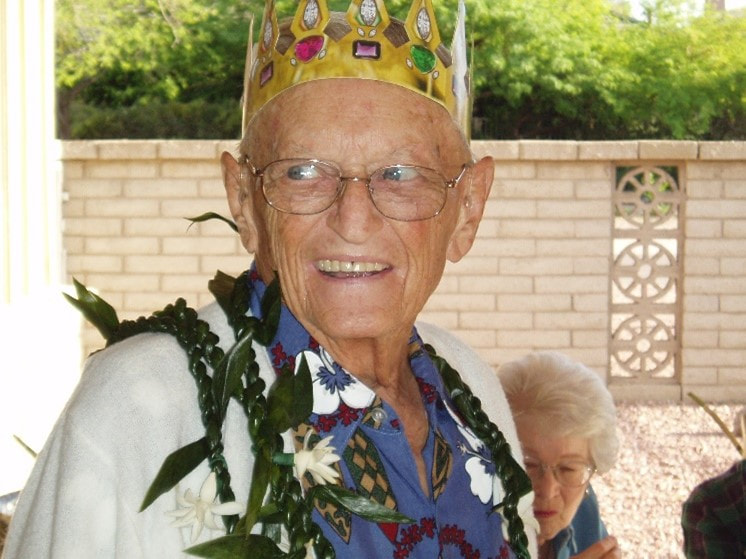Following up on my last blog about the Winter Blues, I would like to address a special population directly, those who often suffer from depression the most. So, this is for anyone over the age of 60, and from one of your peers – me. I don’t particularly care for the term “elderly” so I am going to instead use senior, a term I can better identify with. There is an issue that is growing in our population, Isolation, loneliness and depression. This is a silent struggle that often goes unnoticed. Many seniors find themselves grappling with a profound sense of solitude and depression.
Aging is a natural part of life's journey, and with it comes a myriad of changes - physical, emotional, and social. As we enter our senior years, and throughout the 40 years that make it up (60-100+), the social landscape can transform into unfamiliar terrain, and multiple times at that. Children grow up, friends move away, and the once-familiar faces may become distant memories. In this process, we can find ourselves standing on the precipice of isolation, peering into a void that threatens to engulf our sense of purpose and belonging. Loneliness is not merely a lack of companionship; it's the absence of meaningful connections that once defined our daily lives. Social interactions that were once abundant may dwindle, leaving behind a void that cannot be easily filled.
Anyone living alone, and at any age, can face these feelings. Whether retired or working, we need to face loneliness head on. And please, if you haven’t retired yet, plan, plan, plan for it as loneliness and depression are more likely. I recall my mother struggling with meaning in her mid-60’s. It was then that she added several activities to her life: hospital volunteer; Eucharistic home-bound ministry at her church; and her ladies stretching, exercising, and friendship group. These activities carried her through her late 70’s; adding meaning, friendships, and reducing her loneliness.
If loneliness is there, but also depression, making changes may only be part of what needs to happen to get back into a good place. Feeling down occasionally, lonely, anxious, sad, or “empty” is normal. However, if these feelings persist for weeks or months, it could signify a more serious depression. Here are some signs of depression to watch for in yourself or another:
Feelings of hopelessness, guilt, worthlessness, or helplessness, Irritability, restlessness, or having trouble sitting still, Loss of interest in previously enjoyable activities, Decreased energy or fatigue, Moving or talking more slowly, Difficulty with concentration, memory, or decision-making, Changes in sleep habits, such as trouble falling asleep, waking up too early, or sleeping too much, Changes in appetite Thoughts of death or suicide, or suicide attempts.
If you are facing depression, or stuck in loneliness and isolation pre-depression, please remember you are not alone. Sometimes it means reaching out to an old friend. Or, finding a new friend group or two as my mother found. Maybe taking a class in something you’ve been interested in will help. But if those things don’t help, or you checked off more than two of the first 9 symptoms above, or just the 10th, talk with your doctor as well as someone close to you.
If you know a senior who seems to be struggling and is not getting help, offer to listen and encourage them to go to their doctor. Sometimes more than a change is needed to resolve the issue. Only by addressing it with their doctor will they be able to get the medication needed to help them. And having your support may be what they need to take that step.
Both of my parents often said in their 80’s that “getting older is not for sissies.” And they are right. But dad also had his humor until the end. He celebrated every holiday, birthday, and family get-together as a special event, golfed every week – 3 times, played poker with his buddies monthly, and went to a support meeting at least twice a week. He lived. My mother lived. I watched a birthday special for Dick Van Dyke’s 98th birthday this month. His message was to keep moving …” get your living done first, and have the nerve to try something. Failure’s OK. “
So, take a risk: call the doctor; call a friend, sign up for a class; join a book group; move closer to friends or family; go to a Bible study; play poker with your buddies; learn to garden at your pace whether pots, raised bed, or in the ground; and keep moving. Finley is one of my biggest joys as my pup. Getting a dog or cat for a pet reduces depression and improves health. But take a risk…You may have to learn new ways to live at 68 or 75 or 83, as life and our bodies change. Remember my dad’s face … and keep smiling, keep getting out, and revise your activities and life as needed. As Betty White said: “Don’t try to be young. Stay interested in stuff.”
Aging is a natural part of life's journey, and with it comes a myriad of changes - physical, emotional, and social. As we enter our senior years, and throughout the 40 years that make it up (60-100+), the social landscape can transform into unfamiliar terrain, and multiple times at that. Children grow up, friends move away, and the once-familiar faces may become distant memories. In this process, we can find ourselves standing on the precipice of isolation, peering into a void that threatens to engulf our sense of purpose and belonging. Loneliness is not merely a lack of companionship; it's the absence of meaningful connections that once defined our daily lives. Social interactions that were once abundant may dwindle, leaving behind a void that cannot be easily filled.
Anyone living alone, and at any age, can face these feelings. Whether retired or working, we need to face loneliness head on. And please, if you haven’t retired yet, plan, plan, plan for it as loneliness and depression are more likely. I recall my mother struggling with meaning in her mid-60’s. It was then that she added several activities to her life: hospital volunteer; Eucharistic home-bound ministry at her church; and her ladies stretching, exercising, and friendship group. These activities carried her through her late 70’s; adding meaning, friendships, and reducing her loneliness.
If loneliness is there, but also depression, making changes may only be part of what needs to happen to get back into a good place. Feeling down occasionally, lonely, anxious, sad, or “empty” is normal. However, if these feelings persist for weeks or months, it could signify a more serious depression. Here are some signs of depression to watch for in yourself or another:
Feelings of hopelessness, guilt, worthlessness, or helplessness, Irritability, restlessness, or having trouble sitting still, Loss of interest in previously enjoyable activities, Decreased energy or fatigue, Moving or talking more slowly, Difficulty with concentration, memory, or decision-making, Changes in sleep habits, such as trouble falling asleep, waking up too early, or sleeping too much, Changes in appetite Thoughts of death or suicide, or suicide attempts.
If you are facing depression, or stuck in loneliness and isolation pre-depression, please remember you are not alone. Sometimes it means reaching out to an old friend. Or, finding a new friend group or two as my mother found. Maybe taking a class in something you’ve been interested in will help. But if those things don’t help, or you checked off more than two of the first 9 symptoms above, or just the 10th, talk with your doctor as well as someone close to you.
If you know a senior who seems to be struggling and is not getting help, offer to listen and encourage them to go to their doctor. Sometimes more than a change is needed to resolve the issue. Only by addressing it with their doctor will they be able to get the medication needed to help them. And having your support may be what they need to take that step.
Both of my parents often said in their 80’s that “getting older is not for sissies.” And they are right. But dad also had his humor until the end. He celebrated every holiday, birthday, and family get-together as a special event, golfed every week – 3 times, played poker with his buddies monthly, and went to a support meeting at least twice a week. He lived. My mother lived. I watched a birthday special for Dick Van Dyke’s 98th birthday this month. His message was to keep moving …” get your living done first, and have the nerve to try something. Failure’s OK. “
So, take a risk: call the doctor; call a friend, sign up for a class; join a book group; move closer to friends or family; go to a Bible study; play poker with your buddies; learn to garden at your pace whether pots, raised bed, or in the ground; and keep moving. Finley is one of my biggest joys as my pup. Getting a dog or cat for a pet reduces depression and improves health. But take a risk…You may have to learn new ways to live at 68 or 75 or 83, as life and our bodies change. Remember my dad’s face … and keep smiling, keep getting out, and revise your activities and life as needed. As Betty White said: “Don’t try to be young. Stay interested in stuff.”



 RSS Feed
RSS Feed